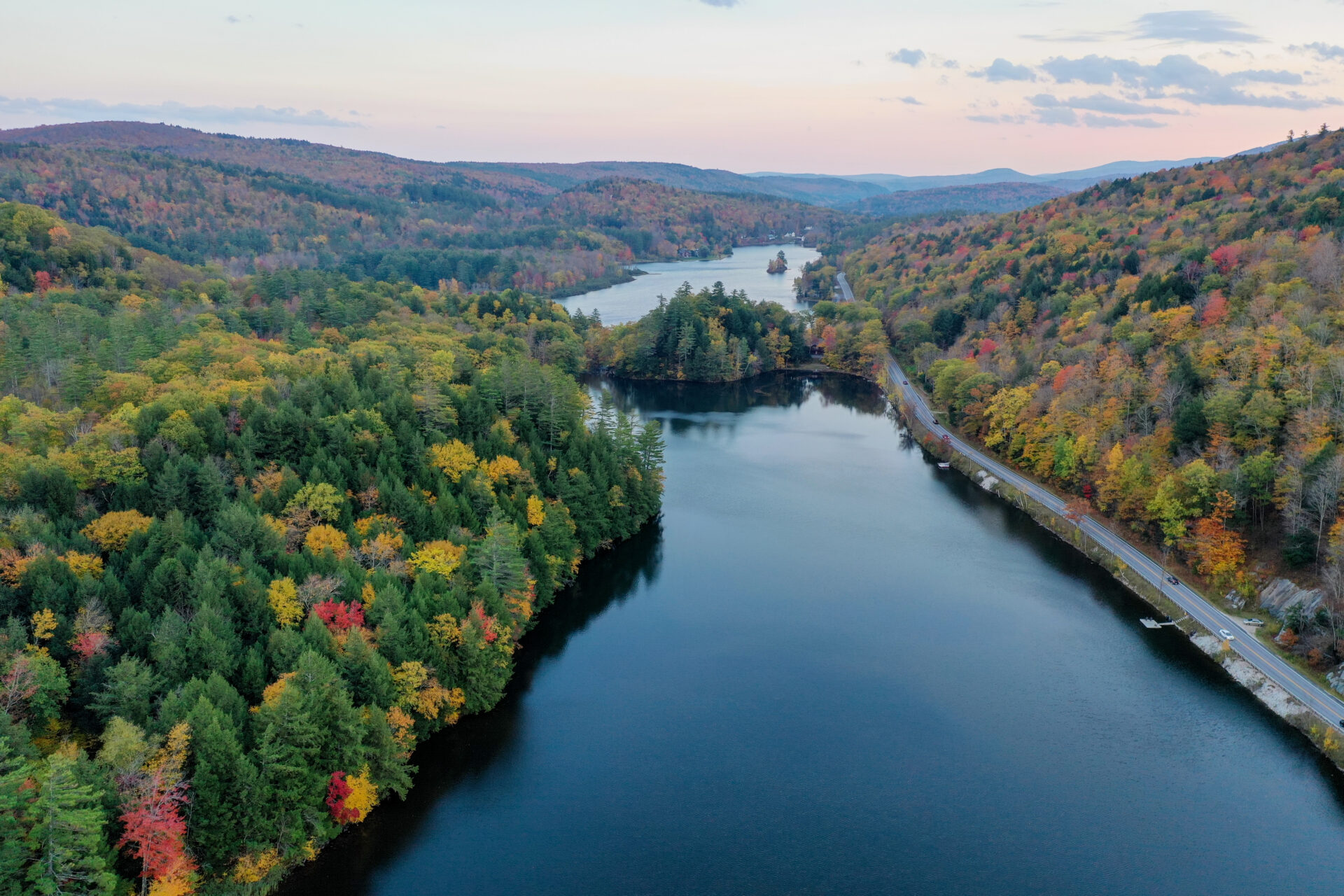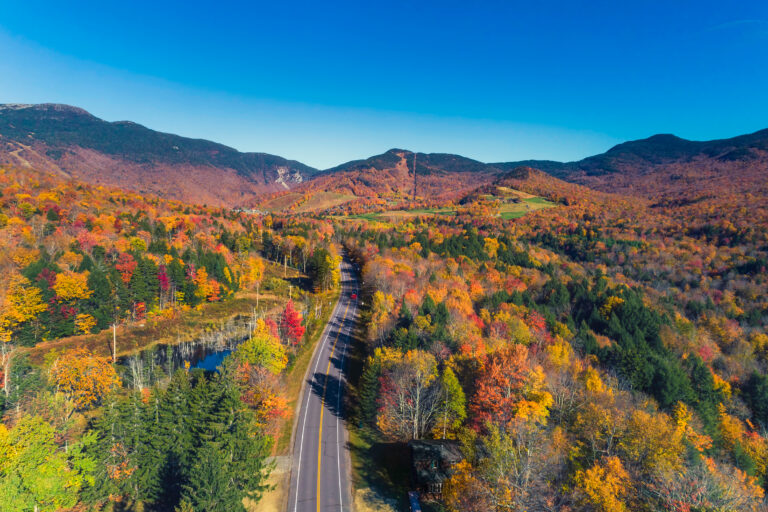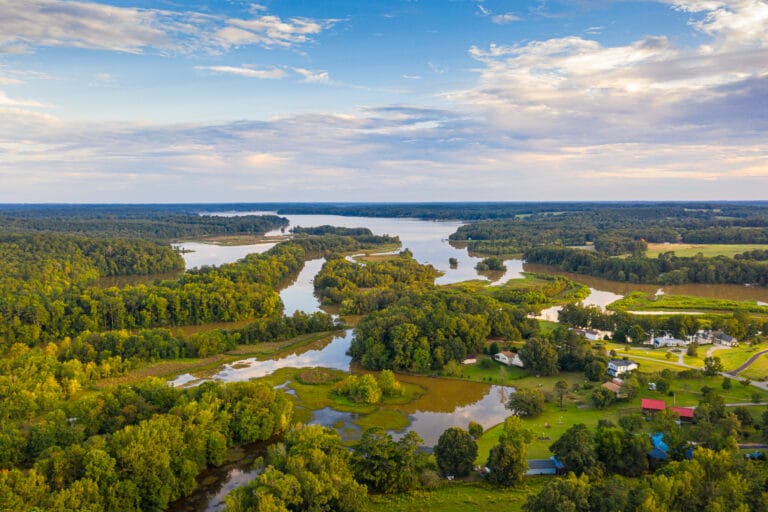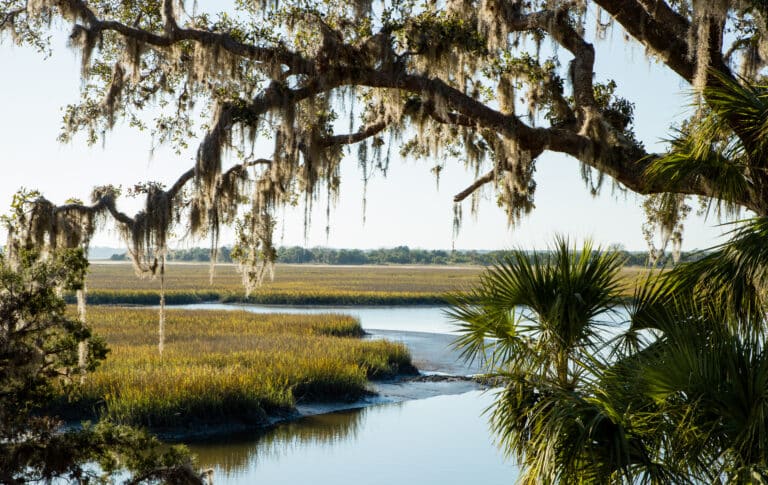Buying land in Vermont opens doors to the best that New England has to offer. At just over 9,000 square miles, this small rural state boasts stunning landscapes all year long, and still features a variety of different land types to suit a range of needs and goals.
If you’re wondering how to buy land in Vermont—from the search process to closing a deal—you’re in the right place. We’re here with a comprehensive guide to buying land in Vermont, exploring key steps, common pitfalls to avoid, and how to align location with lifestyle.
Raising a family, farming, retiring, investing, enjoying a weekend retreat—you can do it all and then some in Vermont. Keep reading to discover our expert tips on how to buy land in Vermont and how to transform your new acreage into your dream property.
Why Vermont Is a Great Place to Buy Land
Vermont is one of the smallest states in the nation, but that doesn’t mean it isn’t packed with potential. Vermont appeals to a wide variety of landowners, thanks to all of the incredible features it offers:
- Natural beauty – Mountains, forests, valleys, lakes, wide-open spaces—Vermont is home to a diverse landscape with a typical New England climate. Enjoy breathtaking foliage in the fall, snow-capped mountains in the winter, fresh maple syrup in the spring, and sparkling lakes in the summer.
- Outdoor lifestyle – Thanks to easy access to nature across the entire state, Vermont is an outdoor activity paradise, with four-season recreation like swimming and skiing. Even if you’re not sporty, Vermont’s lifestyle appeals to land buyers who like to spend time in the great outdoors away from the hustle and bustle.
- Welcoming communities – Vermonters value close-knit communities, welcoming attitudes, and a high quality of life. The state routinely ranks as one of the safest places to live, and its small-town charm is appealing to homesteaders and backpackers alike.
- Sustainability – Vermont is consistently named one of the greenest states, with residents and landowners who appreciate its eco-conscious mindset. It’s a national leader in organic farming, and has the lowest per capita carbon dioxide emissions.
These perks make Vermont both a lifestyle destination and a worthwhile long-term investment for land ownership. Now, let’s dive into what to know before buying land in Vermont.
How to Choose the Right Location in Vermont
The first step in buying land in Vermont is narrowing down your location search. Knowing where to look for land depends on your lifestyle and your goals for the property, as each type of acreage is well-suited to different needs.
With that in mind, let’s compare different parts of Vermont.
- Mountain towns – Mountain towns in Vermont share a common draw: year-round outdoor recreation. In the winter, skiing and snowboarding are the most popular activities, and in the warmer months, residents can enjoy hiking and biking. Major mountain towns with top ski resorts, like Stowe or Jay Peak, appeal to land buyers who want investment property like cabin rentals or a seasonal getaway. Smaller mountain towns are less crowded and more affordable, although they can be farther from amenities and major hubs.
- Farmland – Farms make up over 1 million acres of Vermont’s total land. Most farms are small-scale, with Vermonters focusing on hay crop, cow milk, cattle, and eggs. Farming in Vermont is a commitment to a rugged four-season climate, but there are lots of fertile valleys for a successful farm venture. In fact, Vermont’s range of agricultural land attracts buyers interested in commercial and backyard farming alike. Farmers who value sustainability are especially drawn to organic farming in Vermont, which has the most per capita acreage of organic farms in the country. Agricultural land buyers can also take advantage of USDA farm loans, which are given specifically to start or maintain family farms.
- Waterfront areas – While Vermont is not coastal, there is still lots of waterfront property available at the state’s 823 lakes. A particularly picturesque region are the Champlain Islands, an 80-mile stretch between mainland Vermont and the Canadian border. Lakefront buyers may be interested in personal retreats, full-time residences, rental properties, and outdoor recreation. Waterfront acreage is typically more pricey, but it’s an investment that will only grow in value over time.
- Cultural hubs – Vermont’s cities retain a small-town charm and quintessential New England atmosphere filled with history, culture, and arts. Hubs like Brattleboro, Burlington, and Montpelier all feature vibrant downtowns and lively art scenes, while still being a stone’s throw from the great outdoors. Residential and investment properties are popular choices in these areas.
No matter the area you choose, if you align location with your needs, buying land in Vermont is a smart investment. As you weigh different types of acreage, focus on identifying the best places to buy land in Vermont for your goals—whether that means quiet farmland, a lakefront getaway, or a mountain retreat that fits your lifestyle.
Setting Goals for Your Land Purchase
A key part of the land buying process is sitting down and laying out your priorities. Setting goals for your acreage not only helps you choose the best location but also helps inform your budget, long-term plans, and desired land type.
For instance, if you’re looking for residential land, you can either browse move-in ready properties or explore undeveloped acreage to build your dream home. For agricultural land, the search is simpler: existing farmland and wide-open plots in fertile valleys.
Some land can have various uses. For instance, a getaway cabin can be used as both a personal retreat and a tourist rental. Recreational land is ideal for outdoor activities like skiing, swimming, hiking, biking, and more, and can also double as a residential property.
All in all, your goals will significantly shape the decision-making process, helping you make a confident land purchase.
Key Steps in the Vermont Land Buying Process
When buying land in Vermont, there are four important stages to note: researching listings, connecting with a local agent, conducting surveys and inspections, and finalizing the purchase.
Let’s go through some of the more specific details to know when buying land in Vermont.
Understanding Vermont Land Zoning and Regulations
All local and state governments have zoning and land use restrictions that determine how owners can use their property. For instance, if acreage is not residentially zoned, you cannot build a home on it. Additionally, downtown areas may have limitations on how tall a building can be or how many rental units it can have. Due to environmental protections, you may not be able to build structures within a certain distance of the shoreline. You may also have to request permits to use your property’s fresh water.
No matter your goals, it’s important to carefully review any regulations before purchasing acreage.
Working with Vermont Land Experts and Professionals
Collaborating with local experts goes a long way in streamlining the land buying process. Agents, attorneys, and surveyors can help:
- Research land use regulations
- Review easements
- Verify property borders
- Negotiate with the seller
In particular, local real estate professionals have on-the-ground knowledge of the land market and can offer trusted advice. They know the questions to ask when buying land in Vermont, and can handle all the back-and-forth with the seller. Find a local Land Pro to focus more on your dream property and less on the red tape.
Common Mistakes to Avoid When Buying Land in Vermont
Whether you’re a first-time land buyer or a seasoned landowner, you can be hit by any number of surprises or oversights on your land journey. To ensure a successful purchase, avoid these common pitfalls.
- Skipping due diligence – Due diligence involves a careful investigation of all aspects of your potential property, intended to minimize risk on your investment. Due diligence can include verifying ownership, checking financial records, and conducting a physical inspection of the land.
- Overlooking property access – No matter how amazing a property is, if you can’t access it, you can’t use it. Make sure there is a functional access road, or that it would be fairly easy to implement one.
- Ignoring environmental considerations – On the one hand, you want to investigate things like soil health, flood risk, and water quality before making a purchase. On the other hand, you should also be aware of environmental protections that could restrict land use.
Ultimately, the more prepared you are, the easier it will be to meet your goals with Vermont acreage.
Next Steps: Bringing Your Vermont Land Plans to Life
Having a clear vision, a detailed budget, and help from local professionals are the best ways to turn a land search into a signed deed of sale. No matter your land goals—residential, recreational, agricultural, or investment—Vermont has all the resources you need to make a confident purchase aligned with your lifestyle.
Browse land for sale Vermont for on Land.com, where you can compare thousands of listings statewide. As the nation’s leading online platform for rural real estate, we connect with over 12 million buyers and sellers every month who are looking to turn an idea into reality.
For an even smoother experience, work with a Vermont Land Pro to take advantage of local expertise and real-time insights. Our trusted agents will help every step of the way, from recommending parcels to negotiating a fair price.
Vermont is a hidden gem for land buyers. Explore Vermont land today to secure your slice of the Green Mountain State.
Sources:
United States Census Bureau. Vermont. https://data.census.gov/profile/Vermont?g=040XX00US50.
State of Vermont. Love Where You Live. https://vermontvacation.com/vermont-inspiration-guide/love-where-you-live/.
Think Vermont. Vermont is the No. 1 Greenest State. https://thinkvermont.com/neighbors/vermont-is-the-no-1-greenest-state/.
Visit New England. Northern Vermont. https://www.visit-vermont.com/northern/.
USDA. 2022 Census of Agriculture. https://www.nass.usda.gov/Publications/AgCensus/2022/Online_Resources/County_Profiles/Vermont/cp99050.pdf.
USDA. Farm Loan Programs. https://www.fsa.usda.gov/resources/farm-loan-programs.
Department of Environmental Conservation. Lake Score Card. https://vermontvacation.com/lake-vacation-in-vermont/.
State of Vermont. Champlain Islands. https://vermontvacation.com/places-to-visit/vermont-regions/champlain-islands/.
Department of Environmental Conservation. Permits, Licenses and Certifications. https://dec.vermont.gov/permits.
Investopedia. Due Diligence: Types and How to Perform. https://www.investopedia.com/terms/d/duediligence.asp.



